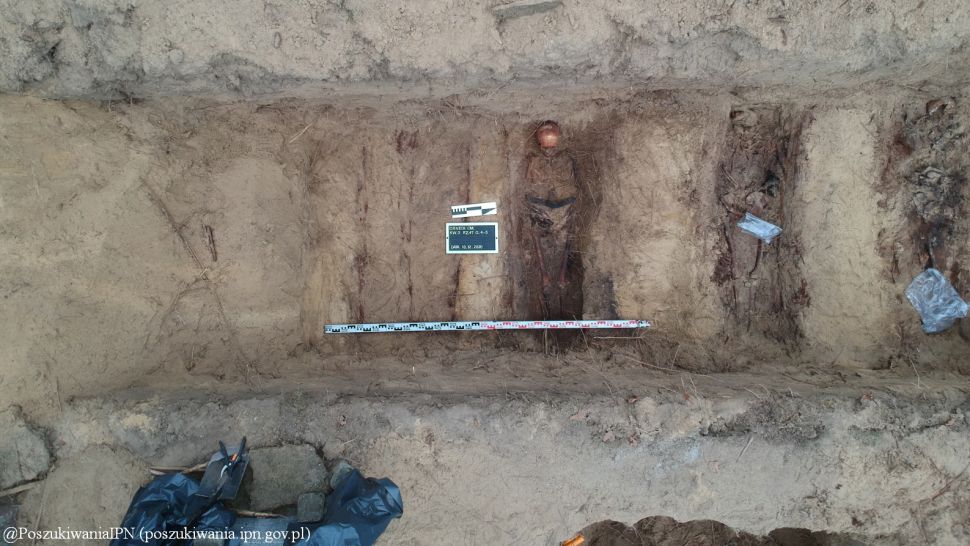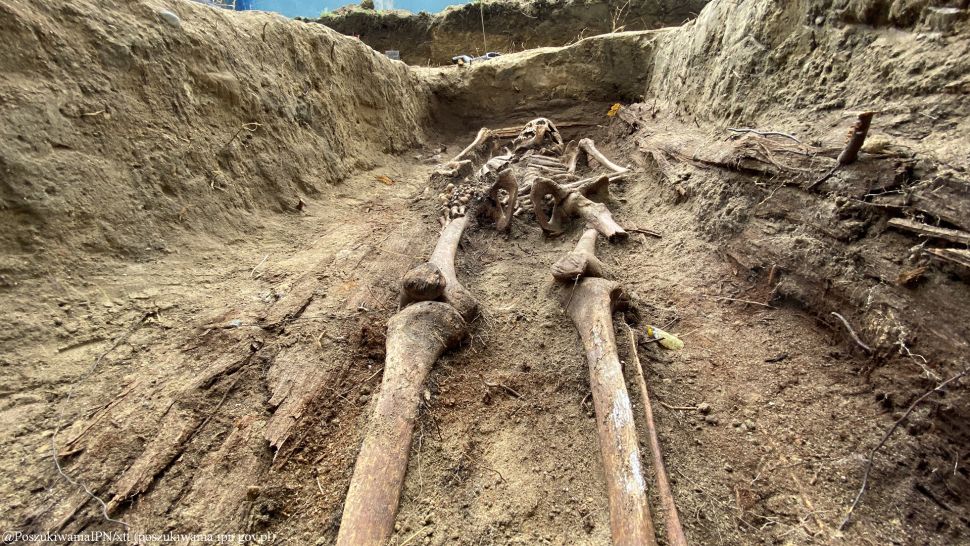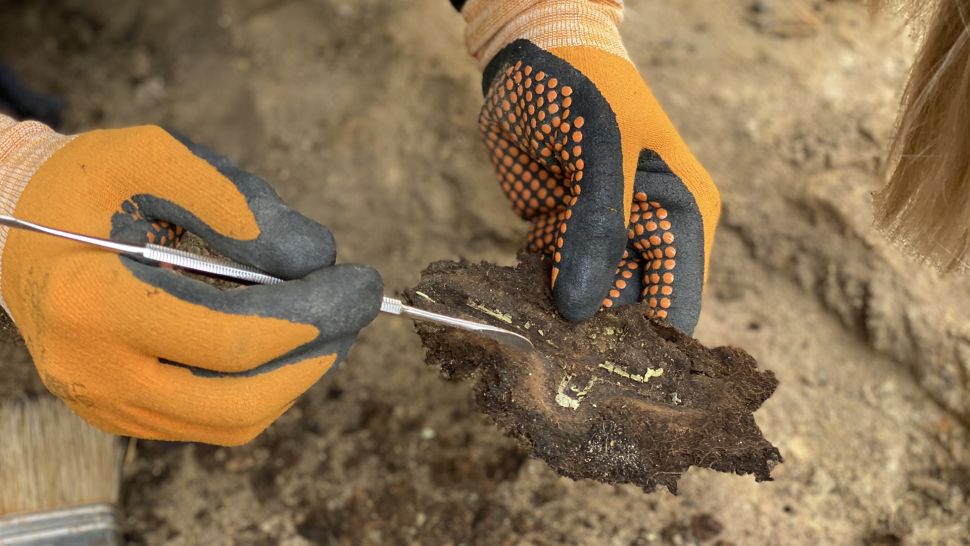Mrknu sem po dlouhé době a hned se setkám s novým výkladem historie. Ani jsem to nedočetl.....nemá to vert.
They discovered the bodies of nuns who had been brutally murdered
Categories: Second World War , War crimes , Nálezy nejenom s detektorem kovů ve východní Evropě
Archaeologists have recently discovered the skeletons of Catholic nuns who were murdered by the Red Army at the end of World War II. Their discovery closes with months of searching. They lost their lives in a particularly brutal way while helping in the hospital. The soldiers also killed patients.
The Red Army invaded Poland in 1944, when Nazi Germany withdrew its troops. During this time, Soviet forces sought control by imprisoning, deporting, and killing Polish soldiers, the clergy, and the civilian population.
There are records from 1945 that speak of the murder of seven nuns by Soviet soldiers. To find out where they are buried, archaeologists first excavated a site in Gdańsk in July 2020. There they found Sary Charytyna's remains. The excavation in Olsztyn then revealed the remains of Sisters Generosa, Krzysztofora and Liberia, who were nurses at Olsztyn's Hospital of the Virgin Mary.
Archaeologists searched for the remaining nuns. And so, in December last year, they dug in the municipal cemetery in Ornet. They dug a hole the size of about twenty square meters. They followed archival records such as a handmade funeral plan. In order to find the graves, they first had to exhume the newer ones above.
Eventually, they found the remains of the three remaining nuns, Sisters Rolanda, Gunhilda, and Bony. "Historical documents, the age and sex of the remains, and the presence of many religious objects, indicated that the skeletons belonged to the murdered nuns," archaeologists said in an official statement.
In the graves they found religious artifacts such as clothing associated with the Order of St. Catherine, small rosaries with polished beads, larger rosaries to be worn on a belt, a cross inlaid with metal patterns and two medallions with pictures of the holy family.
When the Germans began to withdraw from Poland in 1944, the Soviet Union took the chance to take control of the country. "Mass terror followed in Soviet-occupied territory," said the Warsaw Institute. As the Red Army advanced into cities and territories, soldiers looted and burned churches and religious buildings. The nuns were treated really cruelly.
In February 1945, Soviet soldiers attacked hospitals in Gdańsk-Wrzeszcz, Olsztyn and Orneta, where nuns in the Order of St. Catherine served as nurses. The soldiers beat and stabbed the patients and attacked the nuns, causing terrible injuries. Sister Rolanda's face was completely crippled beyond recognition, and Sister Gunhild was literally shot.



Sources: www.livescience.com
The article is included in categories:
- Archive of articles > Wars > Second World War
- Archive of articles > Wars > Second World War > War crimes
- Archive of articles > Archaeology > Finds and rescue research abroad > Nálezy nejenom s detektorem kovů ve východní Evropě
Post
Tuco to se na mě nezlobte, ale jedno nevyvrací druhé. Německo stáhlo své vojáky, protože dostali na prdel v těžkých bojích a byli k tomu donuceni. A dobře jim tak. Kéž by tenkrát dostal na prdel i bolševik. Myslím, že není nutné úplně vše kritizovat a za každou cenu uštěpačně komentovat, hledat problémy tam kde nejsou. Vytváří to zbytečně toxickou atmosféru
Tuco, ale vždyť to je celé postavené na hlavu. To jako RA napadli Polsko v roce 39 a od té doby ho drželi, celé? A co pak teda o pár let později osvobozovali? Ne. Samozřejmě. Když jsme si tohle vyjasnili, tak když zabrali ten východ a západ nechali němcům (samozřejmě zjednodušuji, abych to nepsal ještě zítra), tak pak posléze ten východ osvobodili? Hele zkrátím to - dva vyčůránci, jmenovali se Stalin a Hitler, se domluvili, že si rozdělí Polsko a to se pak taky stalo, každý zabral svou část. Jenže pan H chtěl pana S přechytračit a vzít si to celé, ale to se mu nepovedlo, nakonec dostal na prdel, stáhl své vojáky s rusko zabralo Polsko celé. Ne, neosvobodilo. Protože abys někoho osvobodil, tak mu logický musíš dát svobodu a to se nestalo a rusko to ani nikdy nemělo v plánu. No jó, na morálku, to já jsem holt pes... A to jsem pominul, že část Polska dostávala nejen od rusů a němců, ale ještě ukrajinců. Až mě mrazí když slyším, jaký je teď Bandera opěvovaný hrdina




